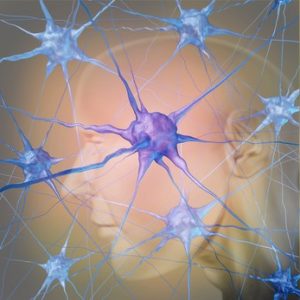Is Your Teen Getting Enough Iron?
Author: Dr. Stephen Chaney
 For those of you with teenagers – or who have had teenagers in the past – you may suspect that there’s nothing between their ears. But actually, there is a lot going on between their ears, and some of the neural contacts laid down in the brain during the teen years influence the health of their brain during their adult life.
For those of you with teenagers – or who have had teenagers in the past – you may suspect that there’s nothing between their ears. But actually, there is a lot going on between their ears, and some of the neural contacts laid down in the brain during the teen years influence the health of their brain during their adult life.
And – no surprise here – what they eat can affect the health of their brain as well. Iron deficiency in children may negatively affect their brains later in life.
Which brings me to a study (N. Jahanshad et al, PNAS 109 E851-E859, 2012 ) that looks at the adequacy of dietary iron intake during the teenage years and their brain health as adults.
Basics of Iron Metabolism
 Before I describe the study perhaps a little bit of what I call Biochemistry 101 is in order.
Before I describe the study perhaps a little bit of what I call Biochemistry 101 is in order.
Free iron is toxic to living cells. For that reason, our body produces multiple proteins to bind and transport the iron. The protein that binds and transports iron through the bloodstream is called transferrin. Under normal conditions 2/3 of the transferrin in our bloodstream has iron bound to it and 1/3 does not. And that is the ideal ratio of bound and unbound transferrin for delivery of iron to brain cells and other cells in our body.
When our diet is iron deficient (or we have excessive blood loss) the percent iron saturation of transferrin decreases. The body tries to compensate by producing more transferrin, but this doesn’t really help since the problem was inadequate iron supply, not inadequate transferrin supply. Consequently, elevated transferrin levels are generally indicative of an iron-deficient diet.
Iron Deficiency In Children
The study was led by Dr. Paul Thompson of the UCLA Department of Neurology. He and his team performed brain scans on 631 healthy young adults with an average age of 23. The brain scans were of a type that measured strength and integrity of the connections between the nerves in the brain – in other words, the brain’s wiring. They then went back and looked at the amount of iron available to each subject’s brain during adolescence by looking at their blood transferrin levels from routine physical exams performed at ages 12, 14 and 16 (blood transferrin levels are often measured as part of routine physical exams).
The results were clear cut. Elevated transferrin levels during the teenage years were associated with reduced brain-fiber integrity in regions of the brain that are known to be vulnerable to neurodegeneration. These individuals did not show any cognitive impairments as young adults, but the concern is that they might be more likely to develop cognitive impairments as they age. From this, we can determine iron deficiency in children may make them susceptible to mental disease as they age.
Dr. Thompson summarized his team’s findings by saying that “Poor iron levels in childhood erode your brain reserves which you need later in life to protect against aging and Alzheimer’s. This is remarkable, as we were not studying iron deficient people, just around 600 normal healthy people. It underscores the need for a balanced diet in the teenage years, when your brain command center is still actively maturing.”
Questions Every Parent Should Ask
If you have teenagers, you might want to ask yourself questions like:
- What is your teenager’s diet like?
- Is it balanced?
- Are you sure that it meets their nutritional needs?
- Should you consider supplementation to make sure that they are getting all the nutrients that they need?
The Bottom Line
- A recent study suggested that inadequate iron intake in the teenage years may affect how our brains are wired in our adult years. The authors of the study interpreted the study as suggesting that an inadequate diet during the teen years could predispose us to cognitive decline and Alzheimer’s as adults.
- This study only looked at structural differences in the brain circuitry. We can’t conclude from this study alone that inadequate iron intake as a teenager will doom somebody to cognitive impairment and increased Alzheimer’s risk as they age. But we can conclude that adequate iron intake during adolescence is required for normal brain development.
- And it’s probably not just iron. This study focused on iron status because transferrin levels are routinely measured during physical exams, so it was easy to go back and determine what each subject’s iron status was during their teenage years. Many other important nutrients are required for normal brain development, but we don’t have an easy way of going back and determining what someone’s nutritional status was for those nutrients in their teen years. What was shown to be true for iron in this study is likely to be true for other nutrients as well.
- These were normal teens eating a normal American diet. They weren’t from a third world country and there was nothing weird about what they were eating. But, clearly some of the subjects in the study weren’t getting the iron that they needed from diet alone.
- The teen years are a time of rapid growth and maturation. It’s not just the brain that needs the proper balance of nutrients during the teen years. All their tissues require proper nutrition.
These statements have not been evaluated by the Food and Drug Administration. This information is not intended to diagnose, treat, cure or prevent any disease.
